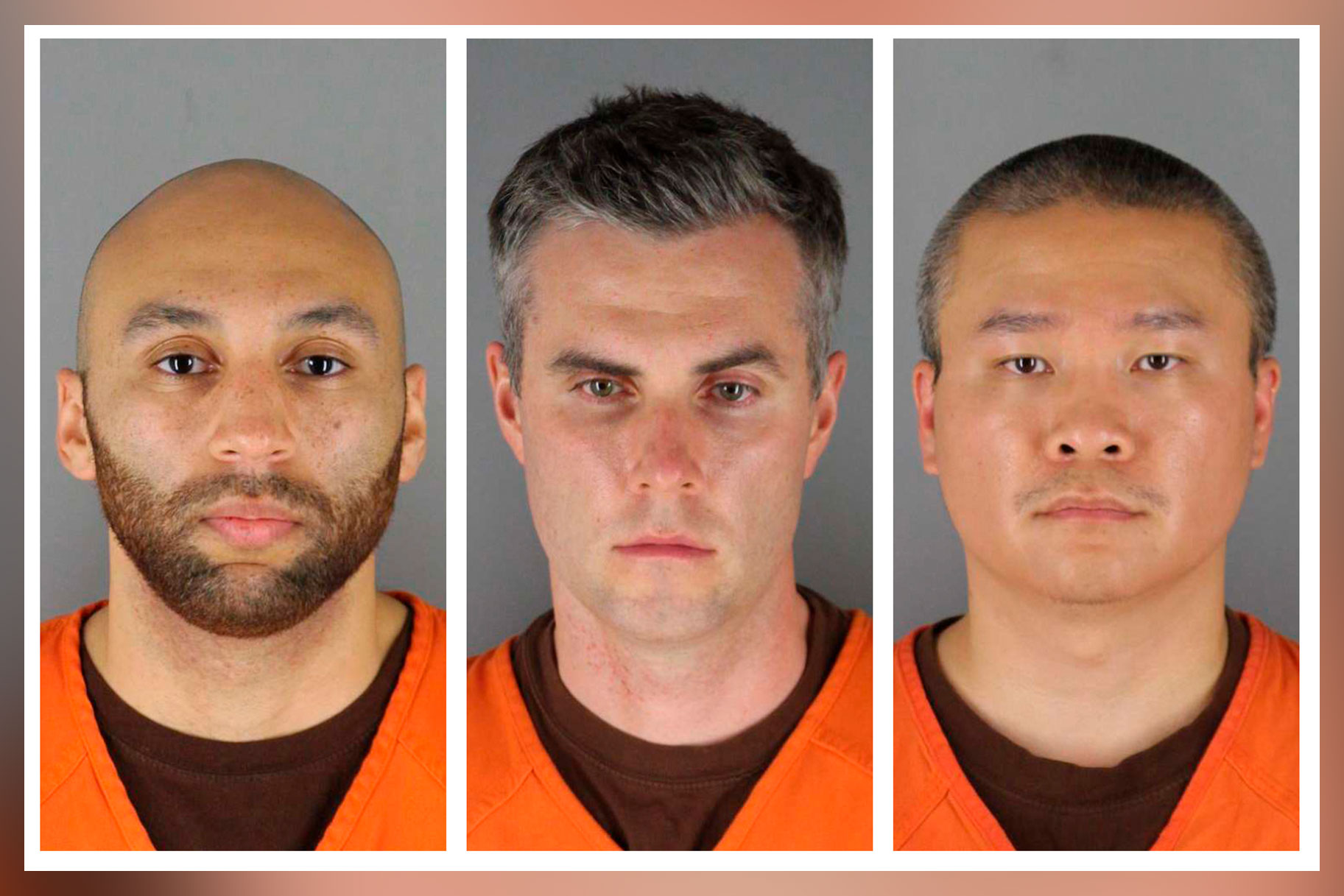Create a free profile to get unlimited access to exclusive videos, breaking news, sweepstakes, and more!
Video Shows How Three Officers Stood By As Derek Chauvin ‘Slowly Killed George Floyd Right In Front Of Them,' Prosecutor Says
Police body camera footage depicting George Floyd's arrest was played during the federal civil rights trial of former Minneapolis officers Tou Thao, Thomas Lane and J. Alexander Kueng as prosecutors asked the jury to "hold these men accountable."

Prosecutors played video from a police body camera Tuesday as witness testimony resumed at the federal civil rights trial of three former Minneapolis police officers accused of violating George Floyd’s civil rights as fellow Officer Derek Chauvin killed him.
Former officers J. Alexander Kueng, Thomas Lane and Tou Thao are broadly charged with depriving Floyd of his civil rights while acting under government authority. Floyd died on May 25, 2020, after Chauvin knelt on his neck for 9 1/2 minutes as the 46-year-old Black man was facedown, handcuffed and gasping for air. Kueng knelt on Floyd’s back, Lane held his legs and Thao kept bystanders from intervening in the videotaped killing that triggered worldwide protests and a reexamination of racism and policing.
Prosecutors told U.S. District Judge Paul Magnuson that they did not plan to play all of the video evidence in court, but want it available to the jury when they deliberate.
Prosecutor Samantha Trepel, who works for the Justice Department’s civil rights division, said during opening statements Monday that the videos will show the three officers stood by as Chauvin “slowly killed George Floyd right in front of them” and told jurors that they “will ask you to hold these men accountable.”
But it was Chauvin, the senior officer at the scene, who called “all of the shots,” one defense attorney told jurors, adding that the Minneapolis Police Department did too little to train officers to intervene when a colleague should be stopped.
Another officer’s attorney focused on Floyd’s struggle with police before they restrained him. And an attorney for the third officer said his client raised concerns about the restraint of Floyd, but was rebuffed.
Chauvin was convicted of murder and manslaughter last year in state court. He also pleaded guilty to a federal count of violating Floyd’s civil rights.
Kueng, who is Black; Lane, who is white; and Thao, who is Hmong American, are all charged for failing to provide Floyd with medical care. Thao and Kueng face an additional count for failing to stop Chauvin, who is white. Both counts allege the officers’ actions resulted in Floyd’s death.
Attorneys for both Kueng and Thao noted that prosecutors must prove the officers willfully violated Floyd’s constitutional rights — a high legal standard that essentially requires prosecutors to prove the officers knew what they were doing was wrong, but did it anyway.
Tom Plunkett, Kueng’s attorney, highlighted the rookie status of his client and Lane, who were responding to a 911 call accusing Floyd of using a counterfeit $20 bill to buy a pack of cigarettes at a corner market. Thao and Chauvin responded as backup.
“You’ll see and hear officer Chauvin call all of the shots,” Plunkett said.
Lane’s attorney, Earl Gray, said Lane was at Floyd’s legs and could not see Chauvin’s knee on Floyd’s neck.
Lane at one point suggested that they use a restraint called the hobble on Floyd, which would have meant Floyd would have been on his side “and no doubt he’d be alive today,” Gray said. But he said Chauvin said no. Lane also suggested twice that they roll Floyd over, but was rebuffed, Gray said.
Gray also said Lane called an ambulance because of a cut on Floyd’s lip and later had another officer increase the urgency of the ambulance code. Gray noted that Lane got into the ambulance and helped perform chest compressions on Floyd.
Thao’s attorney, Robert Paule, said Floyd’s death was a tragedy, “however, a tragedy is not a crime.” He also said a widely watched bystander video of the arrest does not show everything, including Floyd struggling with officers who were trying to put him in a police vehicle.
Gray said Lane will testify, but it’s not known if Thao or Kueng will. It’s also not clear whether Chauvin will testify, though many experts who spoke to The Associated Press believe he won’t.
Magnuson has said the trial could last four weeks.
Lane, Kueng and Thao also face a separate state trial in June on charges they aided and abetted both murder and manslaughter.






















